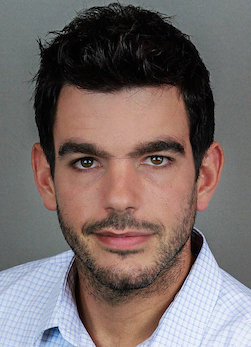Fall 2019 Joint CSC@USC/CommNetS-MHI Seminar Series
 |
Kimon Drakopoulos,
University of Southern California
|
Abstract
In the first part of the talk, we study information design in social networks. We consider a setting, where agents’ actions exhibit positive local network externalities. There is uncertainty about the underlying state of the world, which impacts agents’ payoffs. The platform can choose a signaling mechanism that sends informative signals to agents upon realization of this uncertainty, thereby influencing their actions. We investigate how the platform should design its signaling mechanism to achieve a desired outcome.. We find that in the case where the platform seeks only to minimize misinformation (regardless of the induced engagement), common threshold mechanisms with identical thresholds across agents are optimal. This is in contrast to the engagement maximization setting, where when agents are heterogeneous in terms of their network positions, common threshold mechanisms induce substantially lower engagement than the optimal mechanisms. We also study the frontier of the engagement/misinformation levels that can be achieved via different mechanisms and characterize when common threshold mechanisms achieve optimal tradeoffs.
In the second part of the talk, we study a model of information consumption where consumers sequentially interact with a platform that offers a menu of signals (posts) about an underlying state of the world (fact). At each time, incapable of consuming all posts, consumers screen the posts and only select (and consume) one from the offered menu. We show that in the presence of uncertainty about the accuracy of these posts, and as the number of posts increases, adverse effects such as slow learning and polarization arise. Specifically, we establish that, in this setting, bias emerges as a consequence of the consumer’s screening process. Namely, consumers, in their quest to choose the post that reduces their uncertainty about the state of the world, choose to consume the post that is closest to their own beliefs. We study the evolution of beliefs and we show that such a screening bias slows down the learning process, and the speed of learning decreases with the menu size. Further, we show that the society becomes polarized during the prolonged learning process even in situations where the society’s belief distribution was not a priori polarized.
Biosketch
Kimon Drakopoulos is an Assistant Professor of Operations Management at the Marshall School of Business, University of Southern California. His research focuses on the operations of complex networked systems, social networks, stochastic modeling, game theory and information economics. Kimon, prior to joining USC, completed his PhD at the Laboratory for Information and Decision systems at MIT focusing on the analysis and control of contagion processes on networks.
